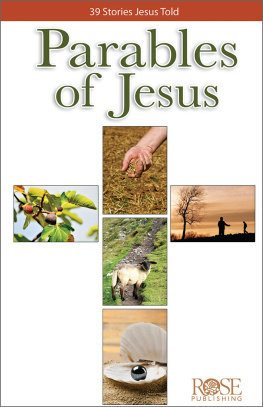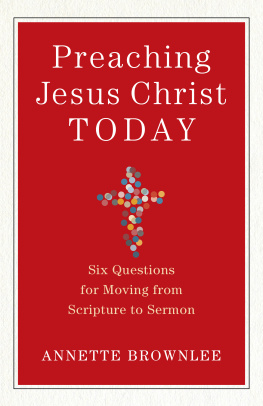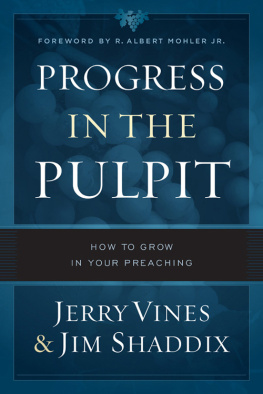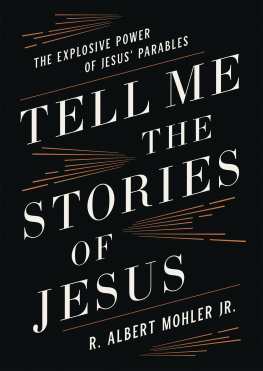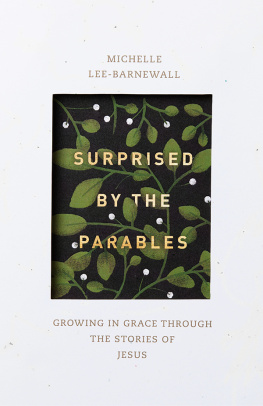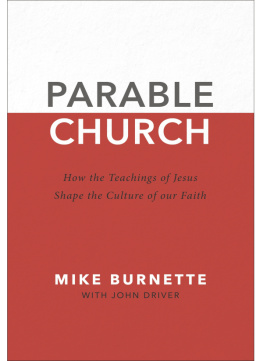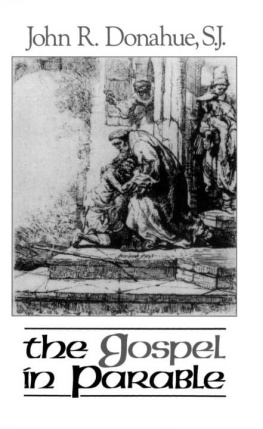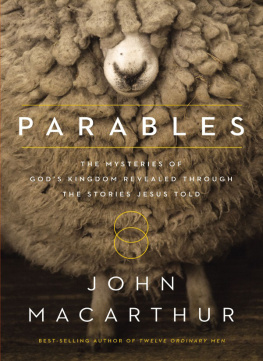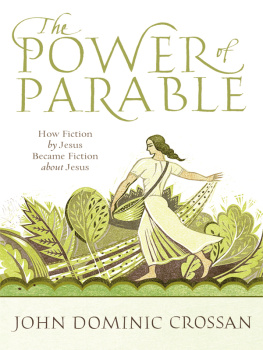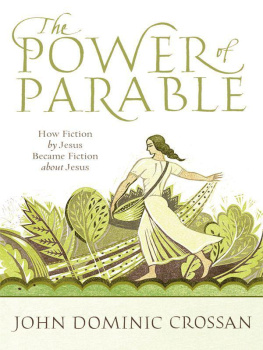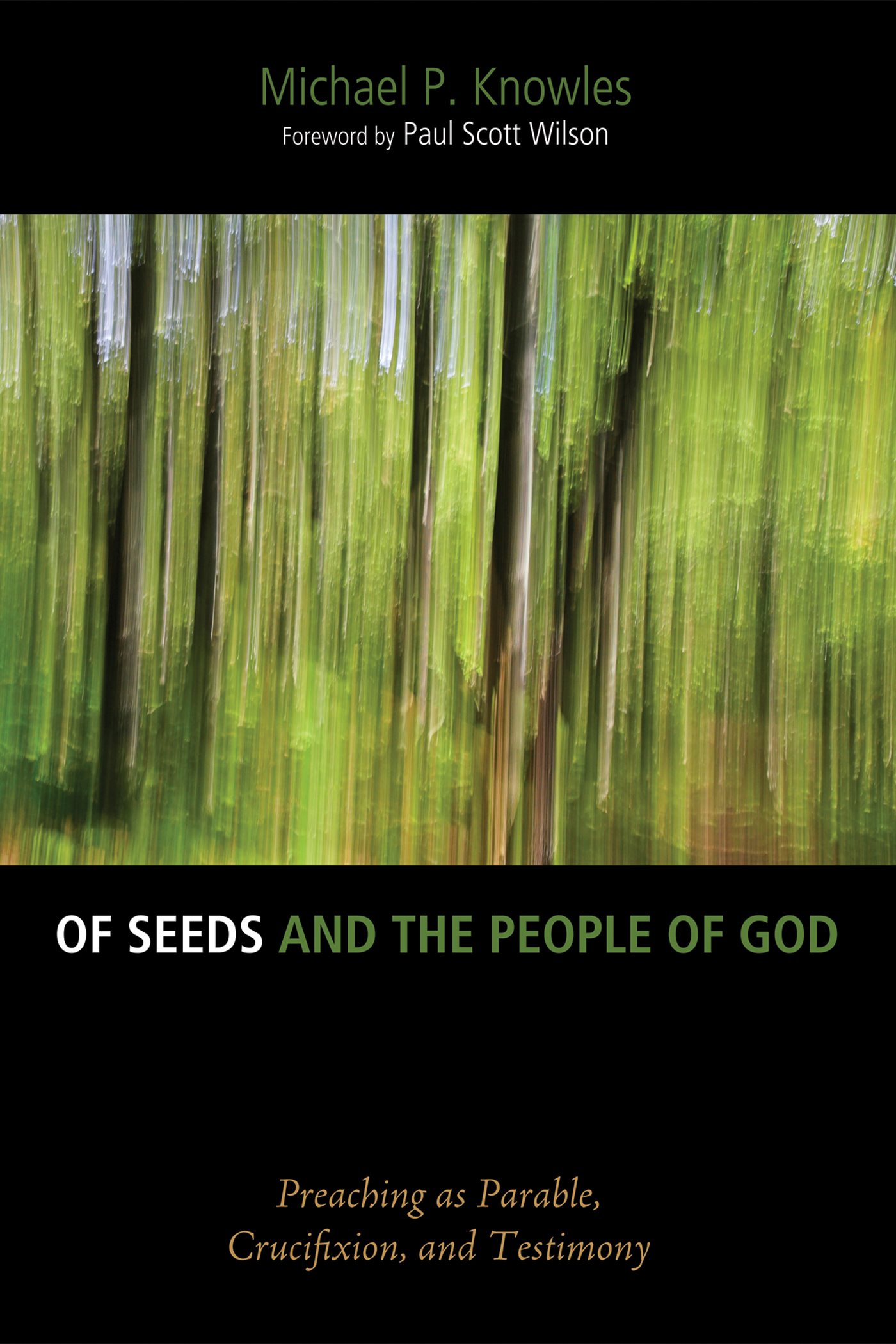Copyright 2015 Michael P. Knowles. All rights reserved. Except for brief quotations in critical publications or reviews, no part of this book may be reproduced in any manner without prior written permission from the publisher. Write: Permissions. Wipf and Stock Publishers, W. th Ave., Suite , Eugene, OR 97401 .
W. th Ave., Suite
Knowles, Michael P.
Of seeds and the people of God : preaching as parable, crucifixion, and testimony / Michael P. Knowles.
xxiv + p. ; cm. Includes bibliographical references and indexes.
Preaching. Jesus ChristParablesHomiletical use. Bible. GospelsCriticsm, interpretation, etc. I. Title.
Manufactured in the USA.
Foreword
In January 1996 , the Hubble telescope examined a tiny spot in the night sky no bigger than a pinhead to the naked eye. The Hubble Deep Field image looks remarkably like the night sky with countless stars as seen by the naked eye. In actual fact, however, that picture is of the farthest limits of the universe, and when computers zoom in on that image, what look like individual stars are in fact hundreds of individual galaxies like our own Milky Way. The light that we currently see from them began its journey billion years ago, which is how far away they are. Scientists tell us that that infinitesimally small spot in the sky is not unusual for what it discloses. In all there are hundreds of billions of galaxies in the entire universe and billions of planets that likely could, like ours, support life.
Such numbers are incomprehensible. Albert Einstein is claimed to have said, Once you can accept the universe as matter expanding into nothing that is something, wearing stripes with plaid comes easy. It is hard for us humans to imagine that the world we see and experience each day, filled as it is with so much activity and so many people, each with their own stories, is so tinyhow small we each are and how much tinier even than a pinpoint is an individual lifespan in terms of the billions of years of creation. For some people, like myself, such contemplation can yield conflicting emotions: wonder and awe yet also a deep and primitive kind of anxiety. It is countered by wonder and awe of another sort, the knowledge that comes through faith in a God who sees the sparrow fall and counts even the hairs on our heads.
Contemplation of this sort may come close to what Michael Knowles prescribes as necessary for all preachers. Only by embracing our utter insignificance can we begin to encounter the possibility of preaching. We put aside any presumption of spiritual authority, strip ourselves of any claim to be able to speak Gods word, discount the years of education and training in preparation for the preaching taskin fact we must yield to our complete human inadequacy to preach, in order to preach. The Word that we preach is not a Bible text, it is the person of Jesus Christ, who can only be known by entering his crucifixion, and receiving from him through the Spirit the life-giving power of his resurrection.
Many biblical texts support the notion of dying to self and living for Christ. It is a common New Testament theme, and many Christians identify it with baptism, not preaching. Paul says in Romans :, Therefore we have been buried with him by baptism into death, so that, just as Christ was raised from the dead by the glory of the Father, so we too might walk in newness of life. In Galatians : he says, It is no longer I who live, but it is Christ who lives in me. And the life I now live in the flesh I live by faith in the Son of God. Jesus says in John :, Very truly, I tell you, unless a grain of wheat falls into the earth and dies, it remains just a single grain; but if it dies, it bears much fruit. First Peter : echoes this imagery and links it to rebirth: You have been born anew, not of perishable but of imperishable seed, through the living and enduring word of God. Baptism and anointing with the Spirit lies behind Jesus words in John :, Very truly, I tell you, no one can see the kingdom of God without being born from above (or born again KJV), and :, Very truly, I tell you, no one can enter the kingdom of God without being born of water and Spirit. What is born of the flesh is flesh, and what is born of the Spirit is spirit.
Dying to self and living for Christ extends explicitly beyond baptism and spiritual anointing to discipleship and ministry when Jesus says in Luke :, If any want to become my followers, let them deny themselves and take up their cross daily and follow me. Perhaps the closest that the Bible comes to connecting dying to self and living for Christ with preaching is in the link to martyrdom or witness, as in Mark :, For those who want to save their life will lose it, and those who lose their life for my sake, and for the sake of the gospel, will save it.
Michael Knowles takes this idea further. In what Jesus said in his parables of seeds and wheat, vineyards and fields, Knowles finds reason to extend the notion of dying to self to the act of preaching. All Christians must pick up their crosses and follow wherever Christ leads, yet can it be that preachers encounter something of this notion each time they preach? Seeds are utterly dependent upon God. As a people of God, we are like seeds requiring Gods life-giving provisions for us to produce. As preachers, we hear and receive the seed of Gods Word, and yield to what Knowles calls the life-giving prerogative of God. God alone has life-giving power. Knowles encourages preachers to cultivate learned theological helplessness. Ministry will rely on willing inability and loving reliance for its success. By yielding any claim to be able to sustain our own lives, we give over our trust to God to provide what is needed.
Preachers are no different from other Christians except in being set apart for their task through call, examination, and ordination. It is a fresh thought, however, that preachers in an additional way encounter dying to self and living for Christ in a manner that is peculiar to their task. Preachers have long known that even as their task can be energizing, it can also be draining. Preachers in my grandparents generation used to compare the energy needed to deliver a sermon to the energy needed to run a marathon (sermons tended to be longer then). In the sense that preachers give to the task their all, preaching is a kind of dying. Preachers must also die to self in their sermons by entering the places of suffering and death, to lift up the cries of the people and minister the gospel to them. Proclamation of the words of good news at the heart of the gospel requires that preachers to a large extent give up any notions of their own identity in order to speak the costly words Christ says to the people, in this moment, you are mine, I died for you, I forgive you, I will be with you always...
Preaching involves a self-emptying (kenosis) in the manner of Christ in Philippians :, Let the same mind be in you that was in Christ Jesus, who, though he was in the form of God, did not regard equality with God as something to be exploited, but emptied himself, taking the form of a slave. In doing this we echo the words and actions of John the Baptist in relation to Jesus, He must increase, but I must decrease (John :). The role of witness functions in service of One who is greater and in whom the power of the Word is acknowledged. The human words we offer in a sermon themselves must die in the moment of delivery; they are but dying sounds, yet by their offering faith comes to life. As Paul says, So faith comes from what is heard, and what is heard comes through the word of Christ (Rom :). The preachers role dies as the deliverer of that Word and is taken up by the Spirit who ushers that Word to completion in the life and work of the body of Christ, kneeling in service to the world.


